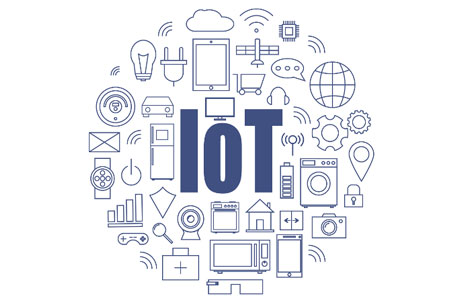THANK YOU FOR SUBSCRIBING
Ensuring Data Integrity in the Era of IoT
Internet of Things (IoT) security architecture puts the connected devices at stake, it’s the need of the hour for IoT solution providers to buckle up and ensure optimum security to the IoT network

By
Apac CIOOutlook | Thursday, January 01, 1970
Stay ahead of the industry with exclusive feature stories on the top companies, expert insights and the latest news delivered straight to your inbox. Subscribe today.
Imagine a hacker taking control of connected home appliances, or the worst of all, taking control of medical devices such as insulin pumps and pacemakers. It not only puts data in the wrong hands but throws a patient’s life in jeopardy.
As poorly managed Internet of Things (IoT) security architecture puts the connected devices at stake, it’s the need of the hour for IoT solution providers to buckle up and ensure optimum security to the IoT network.
The dramatic transformations of machines and appliances in today’s era have added boundless complexities in the IoT architecture and added significant pressure on manufacturers to rethink their security strategies. While classical security concepts are no more relevant given the fact that hackers are leveraging advanced methods to wage cyberwar, IoT manufacturers require that they adopt advanced security measures to protect consumer privacy.
Competitively, almost every industrial manufacturer including home appliance and automobile companies are incorporating IoT technology into their products, requiring them to ensure their digitally-transformed products are interoperable, secure and convenient, and must be able to control without compromising on security.
Although organizations take myriad customized security measures to protect consumer privacy and meet the regulatory and compliance standards, they must have an individual approach—which translates to a security strategy that protects each individual device rather than protecting the whole.
When many devices are connected through a network, third parties try to connect to these devices to access and capture data, thus giving way to new forms of risks. While modern consumers depend on their devices to perform day to day activities, especially in the payments and banking space, the IoT manufactures must adopt a strong and sophisticated security and identity management approach.
This will not only help protect consumer data but will enhance consumer trust and confidence in brands. Also, as people find digital versions of themselves in IoT-enabled devices, IoT manufacturers must protect the digital identities of their consumer right from the ground-up. In other words, if consumer digital identities are not managed and protected well enough, the entire system might fall apart, making the system vulnerable to various types of cyber attacks.





